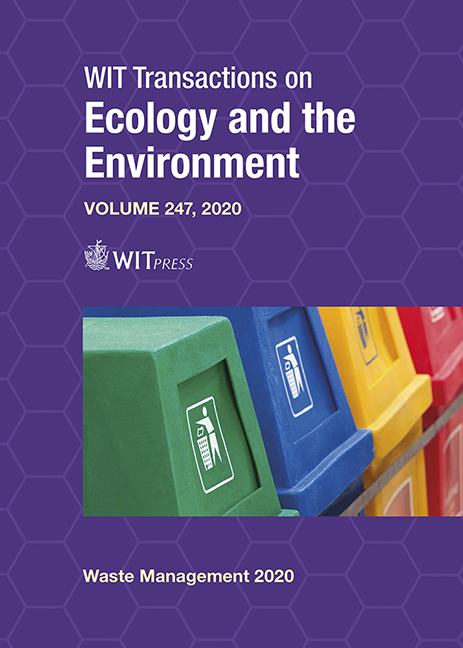STUDY OF COMMERCIAL THERMOPLASTIC BIODEGRADABLE POLYESTER RESIN AS A SOLID WASTE MITIGATION ROUTE USING ASTM D 5988-18
Author(s)
MOHAMED WAHEED KISHK, HAJAR JAWAD KARAM, MASUMAH AL-QASSIMI, AISHA ABDULLAH AL-ROWAIH, MAJED HAMEED AL-WADI, SULTAN MAJED AL-SALEM
Abstract
Developing countries are faced with an overgrowing solid waste problem that various governmental bodies are trying to combat using either source mitigation or end of pipe solutions. Furthermore, the accumulation of plastic solid waste, in particular, is causing major concern to various entities around Gulf Council Countries (GCC), where various efforts are undertaken at state level to mitigate its accumulation from point sources. One such, is the development of standards for biodegradable plastics, namely comparing market available grades of oxo (pro-degradant enhanced) biodegradables against thermoplastic resin masterbatches. In this work, we have initiated such research efforts that takes into consideration governmental demands in the GCC and have considered a commercially available polyester masterbatch to study using the standard test method of the American Society of Testing and Materials D 5988-18 “Determining Aerobic Biodegradation of Plastic Materials in Soil”. Laboratory controlled conditions were used to initiate the study of determining the degree and rate of aerobic biodegradation of the material in contact with soil that represents an active landfill site within the State of Kuwait. The masterbatch resin considered was previously claimed to be certified by the manufacturer in accordance with EN 17033 as a bio-based plastic derived from corn rendering the material as a modified polyester and polyactide. A potato starch (MSDS CAS No. 009005-84-9) purchased from Loba Chemie Company was used for positive control experimental runs. The soil was aerated with the compost in laboratory conditions and mixed in a 1:25 ratio (e.g. 18:450 g compost/g soil) with a moisture content of 80–100% maintained throughout the full duration of the experiment by adding distilled water. The biodegradation rate (%) was evaluated based on the carbon evolution estimation from the stoichiometry of the degradation reaction. The reported results can be used as a comparison baseline for both standards development (for market purposes) and applicability of material as a plastic waste mitigation technique for use.
Keywords
biodegradation, polyester, starch, ASTM D 5988, waste management






